Herbal Monograph: California Poppy (Eschscholzia californica)
Botanical Name:
Eschscholzia californica Cham.
Common Names:
California Poppy, Golden Poppy, Eschscholzia, Poppy, California Gold Poppy, Cup of Gold
Family:
Papaveraceae (Poppy family)
Plant Description:
California Poppy is a perennial herb that is native to the western United States, particularly California. It is a low-growing plant that typically reaches 30–60 cm (12–24 inches) in height, with feathery, gray-green leaves and distinctive, bright orange to yellow flowers. The flowers are cup-shaped and often open in the daytime, closing at night or in cold weather. The plant has a long taproot and produces small, elongated seed pods.
Habitat and Distribution:
Native to California, Eschscholzia californica grows in well-drained, sandy soils and is often found in meadows, foothills, roadsides, and disturbed areas. It thrives in dry, sunny conditions and is drought-tolerant, making it a popular ornamental plant in xeriscapes and gardens. It is now found throughout the southwestern United States and has naturalized in other parts of the world with similar climates.
Parts Used:
- Aerial parts (leaves, stems, and flowers)
- Roots (occasionally)
Constituents:
- Alkaloids (protopine, allocryptopine, eschscholzine)
- Flavonoids (kaempferol, quercetin)
- Glycosides
- Saponins
- Tannins
- Essential oils (methylthiocyanate, isothiocyanate compounds)
Traditional Uses:
California Poppy has been used in traditional herbal medicine by Native American tribes and in early European herbalism for its calming, mild sedative, and pain-relieving properties. Its gentle actions on the nervous system and muscles have made it a staple in treatments for anxiety, insomnia, and mild pain.
-
Nervine and Sedative:
- California Poppy is primarily known for its calming and sedative properties. It has been used to relieve nervous tension, reduce anxiety, and promote relaxation without the risk of dependency associated with stronger sedative drugs. It is a popular remedy for stress, restlessness, and insomnia.
-
Pain Relief:
- It has mild analgesic effects, often used for treating headaches, muscle cramps, and mild to moderate pain. California Poppy is sometimes included in herbal combinations for joint pain or discomfort.
-
Anxiolytic (Anti-anxiety):
- As a gentle anxiolytic, it is used to help manage anxiety, especially when the stress or tension is mild to moderate in nature. It is considered safer and less habit-forming than more potent sedatives or anxiolytics like benzodiazepines.
-
Sleep Aid:
- Traditionally, California Poppy has been used as a mild sleep aid, especially for those who have difficulty falling asleep due to anxiety or restlessness. It is often used in combination with other calming herbs, such as valerian or chamomile, for better sleep quality.
-
Antispasmodic:
- The plant has mild antispasmodic properties, making it useful for relieving muscle spasms and cramps, particularly in the gastrointestinal tract. It is sometimes used for conditions like irritable bowel syndrome (IBS) or menstrual cramps.
-
Mood Stabilizer:
- Due to its calming effects on the nervous system, California Poppy has been used to stabilize mood and help reduce symptoms of mild depression or emotional upset.
Modern Applications:
-
Calming and Relaxing Herb:
- In modern herbalism, California Poppy is used as a natural remedy for stress, anxiety, and insomnia. It is considered a gentler alternative to other more powerful sedative herbs, such as valerian root or kava, making it suitable for those seeking a mild but effective solution to nervous tension or sleep disturbances.
-
Muscle Relaxant and Pain Relief:
- The analgesic and muscle-relaxing effects of California Poppy are increasingly recognized in treating mild pain, especially in the form of tension headaches or muscle aches caused by stress or overexertion.
-
Gentle Anti-anxiety Remedy:
- Modern research has supported the use of California Poppy as an anxiolytic for reducing mild anxiety without side effects or dependency risks. It is often formulated in combination with other herbs, such as passionflower or valerian, for enhanced effectiveness.
Preparations:
-
Infusion/Tea:
California Poppy is often used in herbal teas for its calming effects. Steep 1–2 teaspoons of dried aerial parts in 1 cup of hot water for 5–10 minutes. Drink 1–2 cups in the evening for relaxation or before bed for insomnia. -
Tincture:
The tincture of California Poppy is commonly used for its sedative and pain-relieving effects. A standard dosage is 2–4 mL of the tincture, taken 2–3 times per day. For sleep issues or stress, it can be taken before bed. -
Capsules/Tablets:
California Poppy can be found in capsule form, often in combination with other nervine herbs like valerian or chamomile. The typical dose is 300–500 mg per day, though the exact dosage will depend on the concentration of the extract. -
Topical Use:
While not commonly used topically, some people apply a diluted tincture to relieve localized pain, particularly in muscles or joints.
Dosage:
-
Infusion/Tea:
1–2 teaspoons of dried herb per cup of hot water, steeped for 5–10 minutes, 1–2 cups per day. -
Tincture:
2–4 mL (½–1 teaspoon) 2–3 times per day. -
Capsules/Tablets:
300–500 mg per day, divided into two doses, typically taken in the evening. -
Topical Use:
Dilute tincture (1:5) in a small amount of water and apply to the affected area for pain relief.
Safety and Contraindications:
-
General Safety:
California Poppy is generally considered safe when used as directed. It is a mild herb with no significant known toxicity. However, as with all herbs, it is recommended to use caution and consult a healthcare provider, particularly if combining with other medications or treatments. -
Pregnancy and Lactation:
While California Poppy is considered safe for most adults, it is not recommended during pregnancy or breastfeeding due to a lack of safety data. Pregnant or nursing women should avoid using this herb unless otherwise advised by a healthcare provider. -
Drug Interactions:
California Poppy may interact with sedatives, tranquilizers, or other medications that affect the central nervous system (CNS). Combining it with such substances may have a synergistic effect, leading to excessive sedation or drowsiness. Always consult a healthcare professional if you are on medications for anxiety, depression, or sleep disorders. -
Children:
While California Poppy is often considered safe for children, it should be used in lower doses and under the guidance of a healthcare professional, especially for those under 2 years of age.
Conclusion:
California Poppy (Eschscholzia californica) is a versatile and gentle herb known for its calming, pain-relieving, and mood-stabilizing effects. It has a long history of use as a mild sedative and is increasingly popular for managing stress, anxiety, and insomnia. With its mild action and minimal side effects, it is a valuable herb for those seeking a natural, non-habit-forming remedy for nervous tension or sleep disturbances. As always, use responsibly and consult a healthcare provider for long-term or severe conditions.
Stress, Calm & Sleep
When the day feels heavy, nature offers gentle allies to quiet the mind and prepare the body for rest. These herbs have been treasured for centuries in teas, tonics, and garden rituals that invite stillness and sleep.
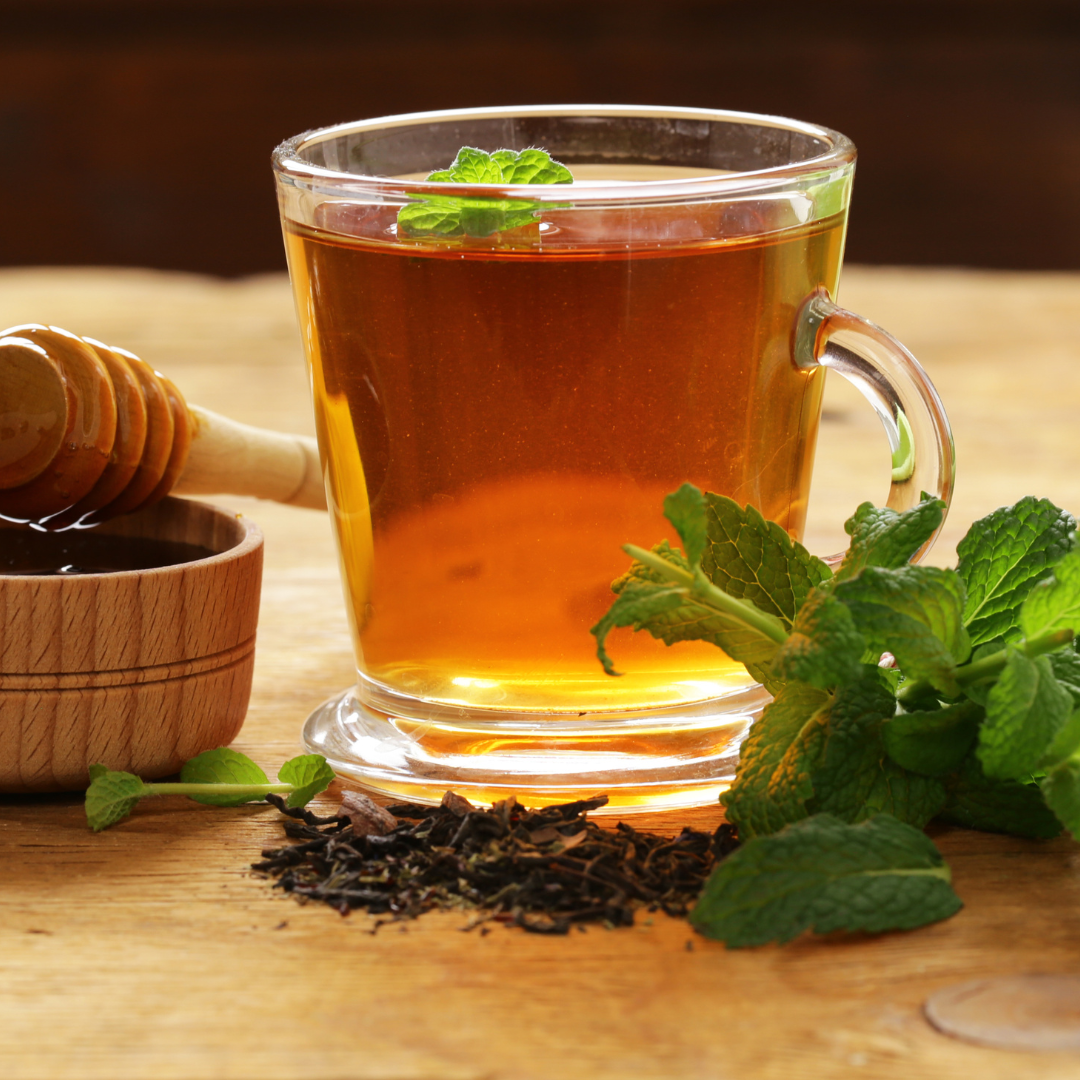
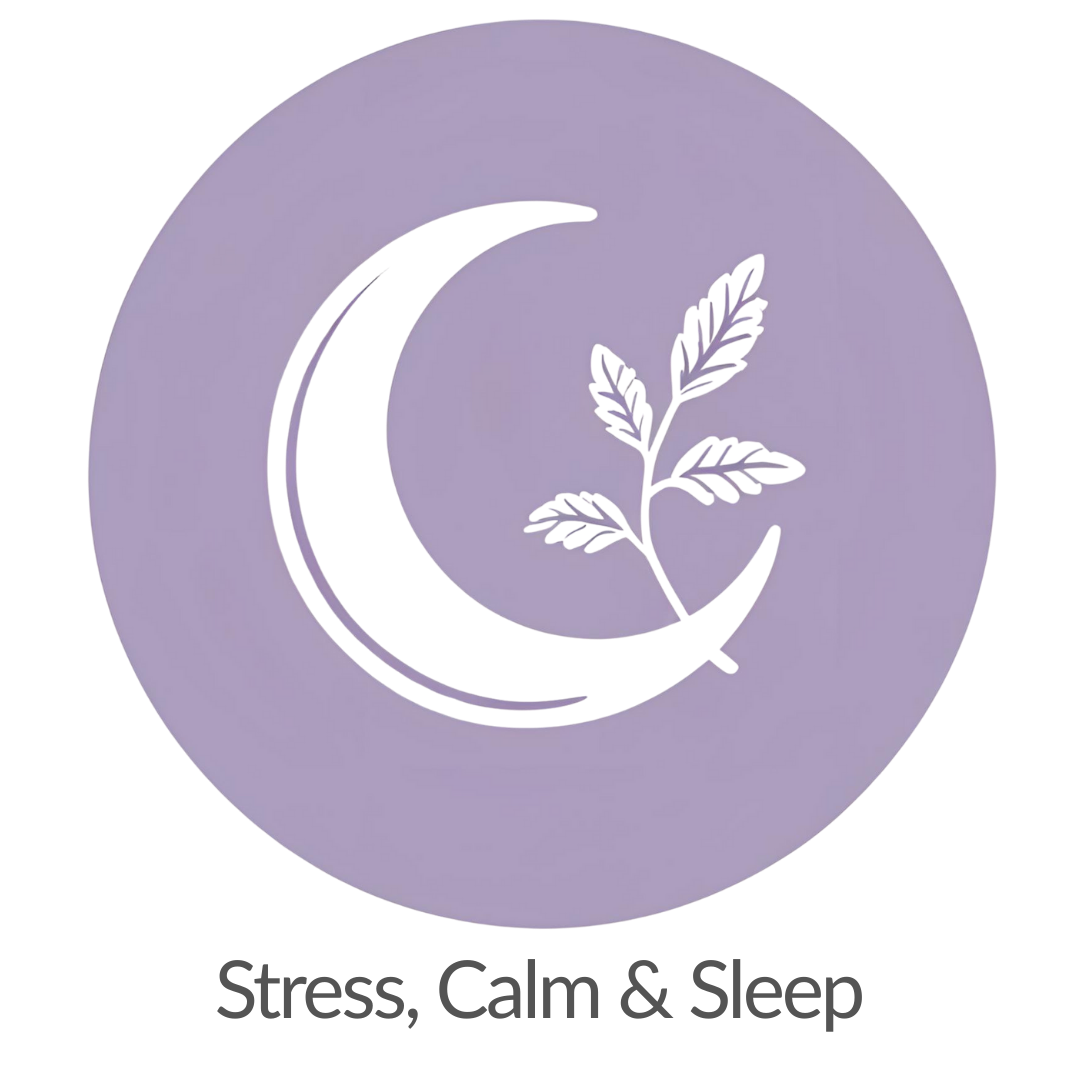
Brew fresh Lemon Balm and Spearmint leaves together for a calming tea that cools the body, lifts the mood, and eases nervous tension. A gentle option for daytime calm without drowsiness. Herbal Synergy Note: Mint amplifies Lemon Balm’s digestive-soothing qualities, making this blend perfect after evening meals.
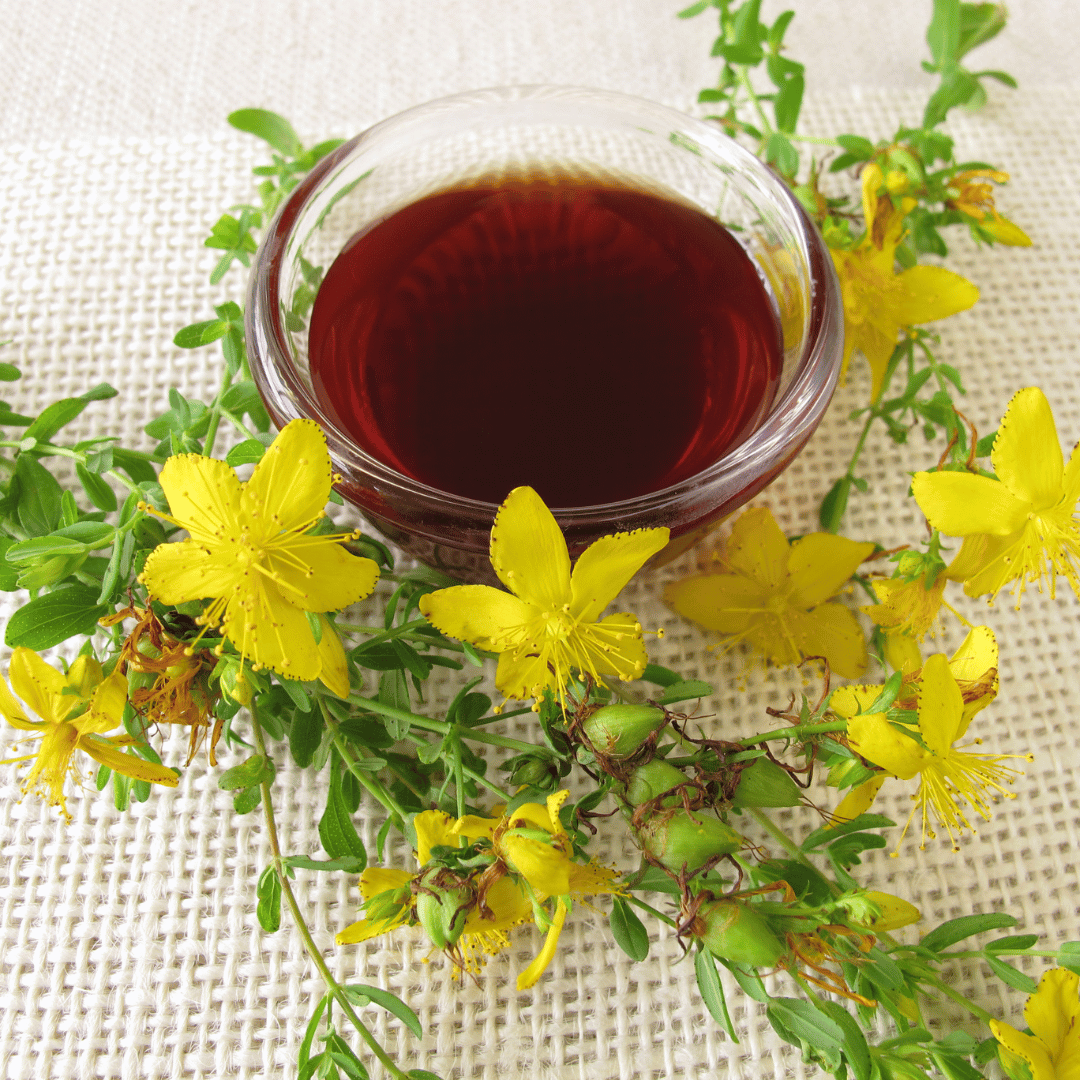

Steep Skullcap leaves with St John’s Wort flowers for 10 minutes in hot water. This gentle blend supports relaxation, eases anxious tension, and uplifts the mood, making it a traditional remedy for stress-related restlessness. Herbal Synergy Note: Skullcap calms the nerves, while St John’s Wort brings lightness to low spirits — a balanced pairing for stress and mood support.*
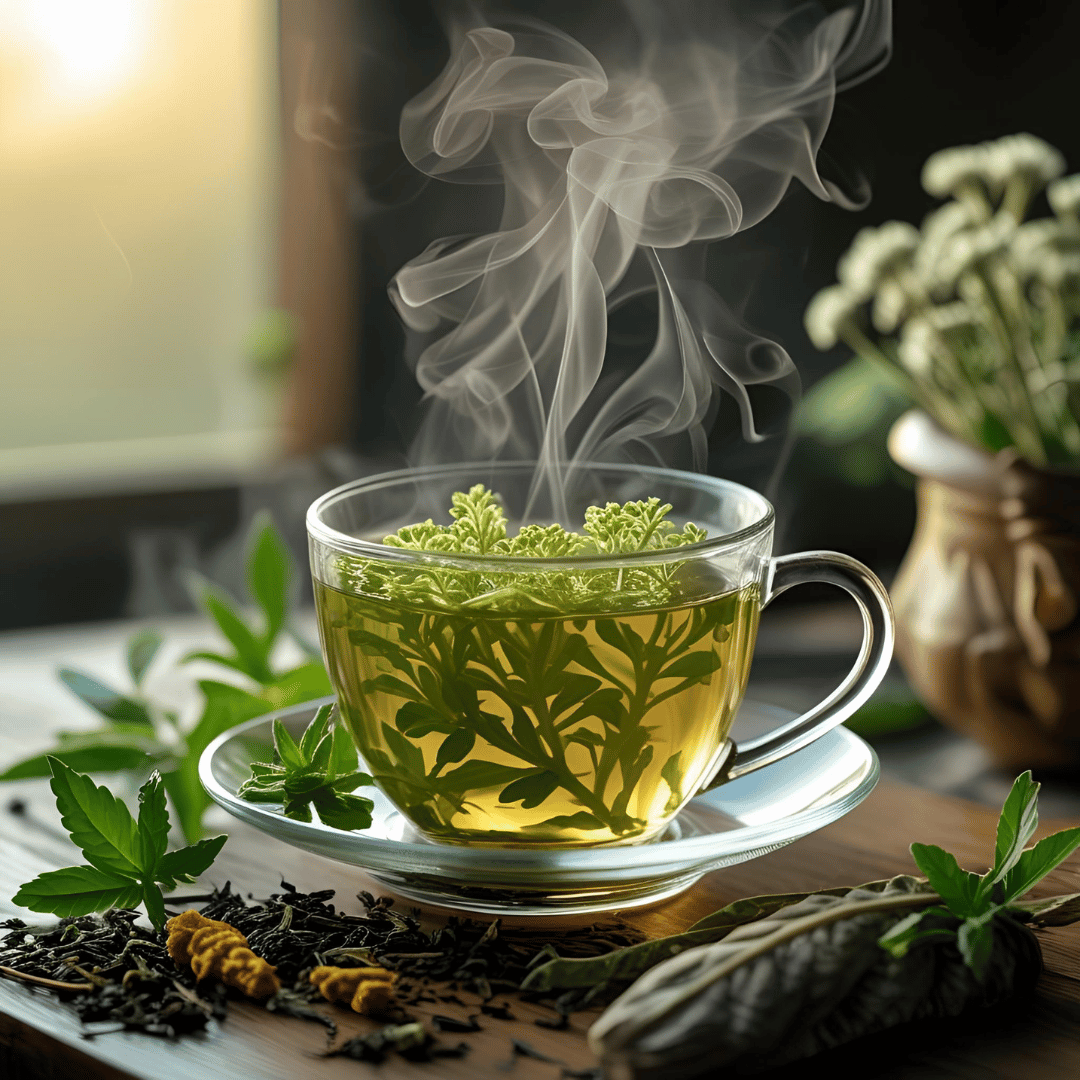

Brew fresh Lemon Balm and Spearmint leaves together for a calming tea that cools the body, lifts the mood, and eases nervous tension. A gentle option for daytime calm without drowsiness.Herbal Synergy Note: Mint amplifies Lemon Balm’s digestive-soothing qualities, making this blend perfect after evening meals.
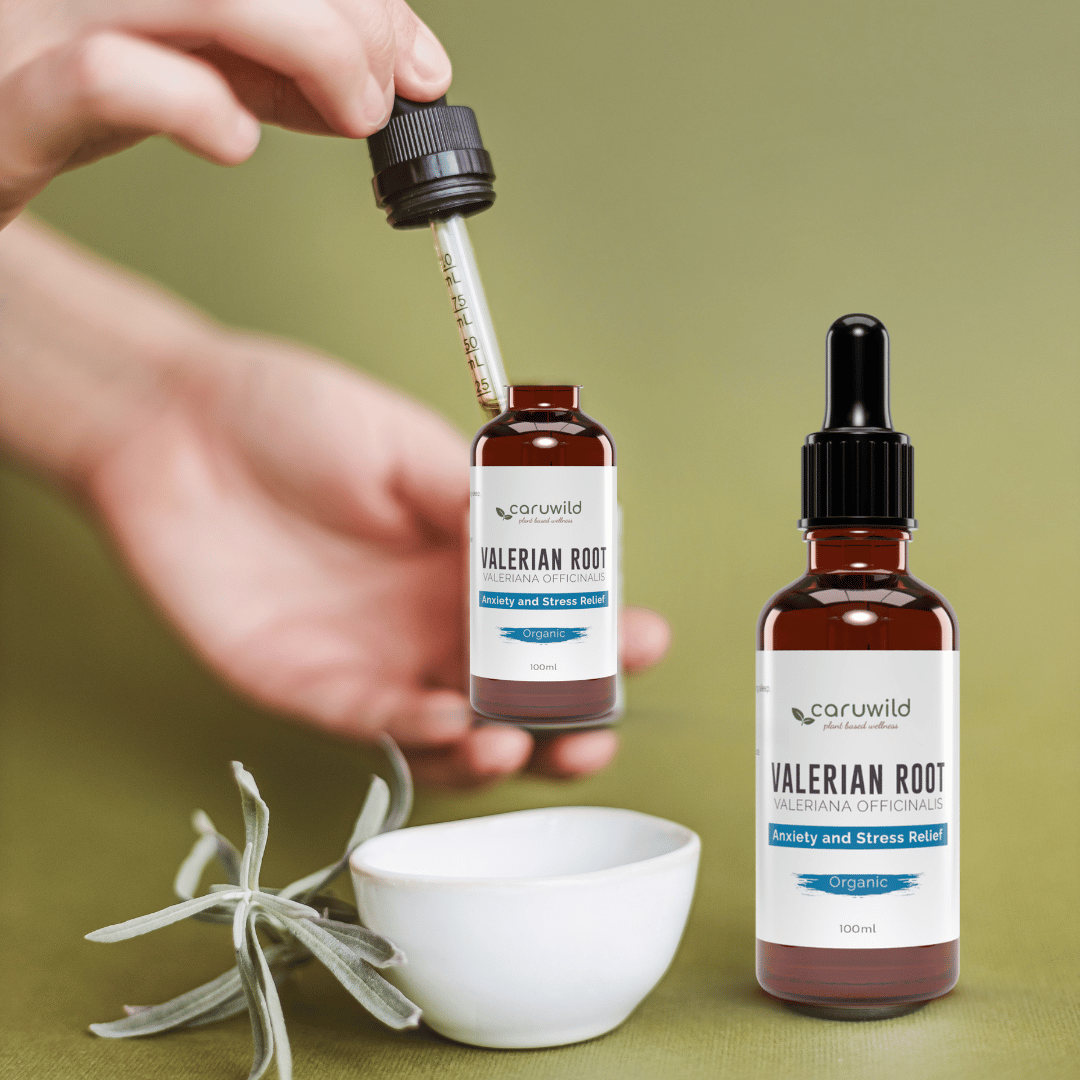

Steep Valerian root for a traditional remedy that supports relaxation and helps ease insomnia. Best enjoyed sparingly, this potent herb is a favourite for quieting a racing mind.Herbal Synergy Note: Works beautifully alongside Chamomile or Lemon Balm to round out its sometimes earthy, bitter taste.

Brew fresh Lemon Balm and Spearmint leaves together for a calming tea that cools the body, lifts the mood, and eases nervous tension. A gentle option for daytime calm without drowsiness. Herbal Synergy Note: Mint amplifies Lemon Balm’s digestive-soothing qualities, making this blend perfect after evening meals.

Steep Skullcap leaves with St John’s Wort flowers for 10 minutes in hot water. This gentle blend supports relaxation, eases anxious tension, and uplifts the mood, making it a traditional remedy for stress-related restlessness. Herbal Synergy Note: Skullcap calms the nerves, while St John’s Wort brings lightness to low spirits — a balanced pairing for stress and mood support.*

Brew fresh Lemon Balm and Spearmint leaves together for a calming tea that cools the body, lifts the mood, and eases nervous tension. A gentle option for daytime calm without drowsiness.Herbal Synergy Note: Mint amplifies Lemon Balm’s digestive-soothing qualities, making this blend perfect after evening meals.

Steep Valerian root for a traditional remedy that supports relaxation and helps ease insomnia. Best enjoyed sparingly, this potent herb is a favourite for quieting a racing mind.Herbal Synergy Note: Works beautifully alongside Chamomile or Lemon Balm to round out its sometimes earthy, bitter taste.




“Discover the plants behind the remedies
Did You Know?
Chamomile was one of the nine sacred Anglo-Saxon herbs.
“Chamomile was known as the ‘plants’ physician,’ believed to strengthen nearby herbs and bring harmony to the garden.”
Women’s Wellness & Balance
For centuries, women have turned to the healing power of herbs to nurture balance, vitality, and resilience. From easing monthly cycles to supporting hormonal health, these plants offer gentle, grounding remedies that honour the rhythm of the body.
“The bundle brought so much beauty and purpose to my garden. Yarrow’s flowers are stunning, and Motherwort has been a gentle ally during stressful times.”
Planting the Women’s Wellness bundle felt like creating a little sanctuary just for me. Every time I pick fresh Lemon Balm or see the Evening Primrose bloom, I’m reminded to slow down and care for myself.”
There’s something empowering about stepping outside, harvesting herbs, and blending a tea that feels made for women like me. This bundle is more than plants — it’s a ritual.


Brew Motherwort leaves for a calming infusion that helps ease tension and offers gentle support for women’s cycles and emotional balance.Herbal Synergy Note: Motherwort’s bitter compounds support circulation, and pairing it with Lemon Balm enhances its nervine (calming) qualities.

Infuse dried Evening Primrose flowers and leafy tops in olive oil to create a soothing oil for gentle abdominal massage or as a base for natural skin care.
Herbal Synergy Note: Evening Primrose’s nourishing oils combine beautifully with Yarrow, enhancing its skin-soothing and restorative effects.

Brew Motherwort leaves for a calming infusion that helps ease tension and offers gentle support for women’s cycles and emotional balance.Herbal Synergy Note: Motherwort’s bitter compounds support circulation, and pairing it with Lemon Balm enhances its nervine (calming) qualities.
Infuse dried Evening Primrose flowers and leafy tops in olive oil to create a soothing oil for gentle abdominal massage or as a base for natural skin care.
Herbal Synergy Note: Evening Primrose’s nourishing oils combine beautifully with Yarrow, enhancing its skin-soothing and restorative effects.






